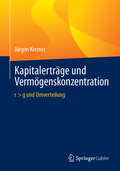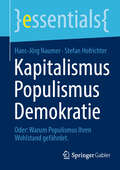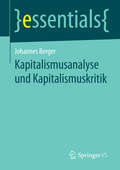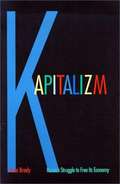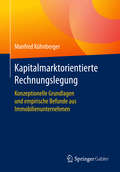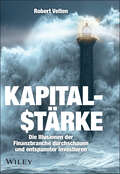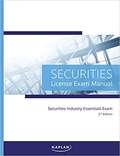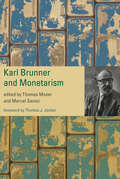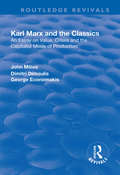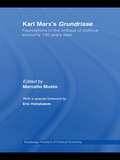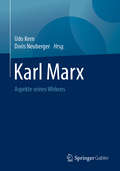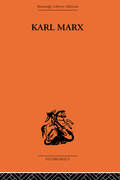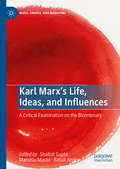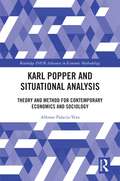- Table View
- List View
Kapitalerträge und Vermögenskonzentration: r > g und Umverteilung
by Jürgen KremerIn diesem Buch werden der Wachstumstheorie zuzuordnende Kreislaufmodelle eingeführt, die der heterogenen Struktur von Volkswirtschaften explizit Rechnung tragen. Dazu werden Ökonomien in Haushaltsgruppen aufgeteilt, die über voneinander verschiedene durchschnittliche Arbeitseinkommen, Konsumausgaben und Vermögen verfügen, und es wird untersucht, welchen Einfluss die Faktoren Wirtschaftswachstum und Kapitalertragsrate auf deren wirtschaftliche Entwicklung ausüben. Im Rahmen dieser Modelle wird nachgewiesen, dass sich die Haushaltsgruppen vollkommen unterschiedlich entwickeln können. Insbesondere dann, wenn die Kapitalertragsrate größer ist als das Wirtschaftswachstum, kann eine zunehmende Konzentration der Vermögen bei den wohlhabenden zulasten der Vermögen der übrigen Haushaltsgruppen auftreten. Im letzten Teil des Buches wird der Einfluss von Einkommen- und Kapitalertragssteuern auf die Vermögensverteilung untersucht.
Kapitalismus Populismus Demokratie: Oder: Warum Populismus Ihren Wohlstand gefährdet. (essentials)
by Hans-Jörg Naumer Stefan HofrichterDieses Essential untersucht Gründe für das Erstarken des Populismus weltweit aus vor allem ökonomischer Perspektive, und belegt welche Folgen populistische Regierungen für Wachstum, Wohlstand und Finanzmärkte haben. Dabei wird deutlich, dass der Populismus über Wachstumseinbußen schnell in einen Teufelskreis münden kann, der auch Kapitalerträge gefährdet. Der "populistische Teufelskreis" kann durchbrochen werden, indem dem Gespinst aus Fakenews, Abstiegssorgen und Verteilungskämpfen ökonomische Lösungen entgegengesetzt werden. Die Autoren spenden ihr Honorar an das Kinderhilfswerk „Die Arche&“. Der Inhalt Analyse des Populismus aus ökonomischer Perspektive Auswirkungen auf Wachstum, Wohlstand, Inflation und Kapitalanlage Lösungen, wie der „populistische Teufelskreis&“ durchbrochen werden kann
Kapitalismusanalyse und Kapitalismuskritik (essentials)
by Johannes BergerDer Kapitalismus, so hat Schumpeter gesagt, ist eine,,Maschine der Massenproduktion, was unvermeidlich auch Produktion für die Massen bedeutet. " Was immer man von diesem System halten mag: Kein anderes Wirtschaftssystem löst die Aufgabe, die Bevölkerung mit immer mehr und ständig neuen Konsumgütern zu versorgen, besser. Wie es aussieht, ist die Wohlstandsmehrung jedoch begleitet von materieller Ungleichheit, in ihrer Höhe schwankender Arbeitslosigkeit und ständig wiederkehrenden Wirtschaftskrisen. Zunächst wendet sich der Artikel den Grundzügen des modernen Kapitalismus zu. In einem zweiten Schritt wird dann der Gestaltwandel des Kapitalismus thematisiert. Im Anschluss daran wird die vielstimmige Kritik an diesem Wirtschaftssystem untersucht. Sie ist nicht nur Sozialkritik, sondern immer auch Kulturkritik gewesen. Der Beitrag schließt mit einem Ausblick auf die Zukunft dieses Wirtschaftssystems und skizziert denkbare, aber unwahrscheinliche Reformen, deren Verwirklichung in eine Wirtschaftsform jenseits der bestehenden führen würde.
Kapitalizm: Russia's Struggle to Free Its Economy
by Rose BradyRose Brady, former Moscow bureau chief for Business Week magazine, here provides a compelling firsthand account of Russia's transition from a socialist state to a market economy. Taking us into the factories, stores, banks, markets, homes, schools, and corridors of power in Russia, she explains how the country's own brand of capitalism has evolved.
Kapitalmarktorientierte Rechnungslegung: Konzeptionelle Grundlagen und empirische Befunde aus Immobilienunternehmen
by Manfred KühnbergerDieses Buch vermittelt anschaulich die Ziele von Finanzberichten und die damit verknüpften Eigenschaften von Rechnungslegungssystemen. Dazu erläutert der Autor ausführlich die wichtigsten Informationsinstrumente (Bilanz, GuV, OCI, Anhang etc.) und ihre Kapitalmarktrelevanz. Am Beispiel des Fair Value Accounting wird dies erläutert. Der Leser erhält Antworten auf die Fragen, wie die Qualität der Rechnungslegung gemessen werden kann bzw. von welchen Faktoren sie abhängt. Ausführlich wird auf Branchenbesonderheiten von Immobilienunternehmen eingegangen.
Kapitalstärke: Die Illusionen der Finanzbranche durchschauen und entspannter investieren
by Robert VeltenLassen sich gute Aktien finden oder sind ETFs das Mittel der Wahl? Nützen nachhaltige Fonds? Warum liefert die Finanzindustrie so viele teure Eskapaden und so wenig gute Ergebnisse? Können technischer Fortschritt und die Dominanz der USA die Börsengewinne noch einmal steigern? Wie kann man Vermögen dauerhaft sichern: Mit KI oder gesundem Menschenverstand? Bei all diesen Fragen zeigt die Praxis: Auch Finanzprofis machen Fehler, die sich psychologisch beschreiben lassen und nachhaltigen Erfolg verhindern. Wissenslücken und falsche Anreize erledigen den Rest. Die Folgen: Unnötige Kosten, Verluste und Risiken. Wir können Banken und Vermögensverwalter, die für uns arbeiten, überwachen und auch unsere eigenen Finanzentscheidungen besser verstehen. Um Vermögen effektiv anzulegen brauchen wir tiefere Einblicke in die Funktionsweise der Kapitalmärkte, die Praxis der professionellen Geldanlage und in uns selbst! Wir müssen uns gerade vor denjenigen Kapitalfehlern schützen, die sogar Profis befallen. Das ist leichter als man denkt, denn dieses Buch räumt Schritt für Schritt mit den aktuellen Illusionen auf und offenbart den festen Grund, auf dem eine nachhaltige Vermögensanlage stehen kann. Dr. Robert Velten, mehrfach ausgezeichneter Fondsmanager und Wirtschaftswissenschaftler verbindet neueste Erkenntnisse aus der Verhaltenspsychologie mit praktischen Beobachtungen und schildert auf unterhaltsame Weise, welche Strategien Börsenstürmen trotzen und wie kapitalstarkes Investieren mit mehr Gelassenheit gelingen kann.
Kaplan Securities Industry Essentials (SIE) – License Exam Manual
by Kaplan Financial EducationPartner with the industry leader in securities licensing exam preparation. Kaplan provides the critical knowledge needed to help you succeed on the Securities Industry Essentials (SIE) exam. Our content development is based around the SIE Exam Content Outline provided by FINRA.
Karen Bruck: Growing Managers at MercadoLibre
by Joshua D. Margolis Fernanda Miguel Mariana CalKaren Bruck, Corporate Sales Director at MercadoLibre, Latin America's largest e-commerce platform, needs to make a decision about one of her managers, who, while analytically savvy, has an approach that does not fit in with the company's culture.
Karen Leary (A)
by Linda A. Hill Jaan EliasDescribes the evolution of the working relationship of Karen Leary, a new manager of a Merrill Lynch retail branch, and Ted Chung, a new financial consultant in the branch. Leary has some concerns about her working relationship with Chung and with his performance. Chung makes what Leary perceives to be an unreasonable request for a private office. Leary must respond to this request, taking into account the implications of her decision for her ambitions for the branch office and her career.
Karin Vinik at South Lake Hospital (A)
by Kim B. Clark Joseph L. Badaracco Jr.A newly appointed hospital CEO must decide how aggressively she should pursue a sexual harassment accusation against a long-time senior hospital executive, who was also a rival for the CEO position.
Karl Brunner and Monetarism
by Thomas Moser and Marcel SaviozEconomists consider the legacy of Karl Brunner&’s monetarism and its influence on current debates over monetary policy. Monetarism emerged in the 1950s and 1960s as a school of economic thought that questioned certain tenets of Keynesianism. Emphasizing the monetary nature of inflation and the responsibility of central banks for price stability, monetarism held sway in the inflation-plagued 1970s, but saw its influence begin to decline in the 1980s. Although Milton Friedman is the economist most closely associated with the development of monetarism, it was Karl Brunner (1916–1989) who introduced the term into the current vocabulary of economics and shaped its meaning. In this volume, leading economists—many of them Brunner&’s friends and former colleagues—consider the influence of Brunner&’s monetarism on current debates over monetary policy. Some contributors were participants in debates between Keynesians and monetarists; others analyze specific aspects of monetarism as theorized by Brunner and his close collaborator Allan Meltzer, or address its influence on US and European monetary policy. Others take the opportunity to examine Brunner-Meltzer monetarism through the lens of contemporary macroeconomics and monetary models. The book grows out of a symposium that marked the 100th anniversary of Brunner&’s birth. ContributorsErnst Baltensperger, Michael D. Bordo, Pierrick Clerc, Alex Cukierman, Michel De Vroey, James Forder, Benjamin M. Friedman, Kevin D. Hoover, Thomas J. Jordan, David Laidler, Allan H. Meltzer, Thomas Moser, Edward Nelson, Juan Pablo Nicolini, Charles I. Plosser, Kenneth Rogoff, Marcel Savioz, Jürgen von Hagen, Stephen Williamson
Karl Marx and the Classics: An Essay on Value, Crises and the Capitalist Mode of Production (Routledge Revivals)
by John Milios Dimitri DimoulisThis title was first published in 2002: By exploring Marxian value theory and its relevance to present issues of economic analysis, such as the circuit of social capital, the quantity theory of money, instability and economic crises, and economic exploitation and its ideological disguise, this volume investigates the conceptual links between Marxian and Classical Political Economy. The book poses and discusses questions that have yet to be tackled thoroughly in the English-language Marxian literature, such as Marx's theoretical inconsistencies and the role of Engels as editor and "interpreter" of Marx's writings. In doing so, this excellent text provides a much-needed contemporary re-evaluation of the work of one of the world's most enduring writers.
Karl Marx's Grundrisse: Foundations of the critique of political economy 150 years later (Routledge Frontiers Of Political Economy Ser.)
by Marcello MustoWritten between 1857 and 1858, the Grundrisse is the first draft of Marx‘s critique of political economy and, thus, also the initial preparatory work on Capital. Despite its editorial vicissitudes and late publication, Grundrisse contains numerous reflections on matters that Marx did not develop elsewhere in his oeuvre and is therefore extremely im
Karl Marx's Theory of History: A Defence (Expanded Edition)
by G. A. CohenFirst published in 1978, this book rapidly established itself as a classic of modern Marxism. Cohen's masterful application of advanced philosophical techniques in an uncompromising defense of historical materialism commanded widespread admiration. In the ensuing twenty years, the book has served as a flagship of a powerful intellectual movement--analytical Marxism. In this expanded edition, Cohen offers his own account of the history, and the further promise, of analytical Marxism. He also expresses reservations about traditional historical materialism, in the light of which he reconstructs the theory, and he studies the implications for historical materialism of the demise of the Soviet Union.
Karl Marx: Aspekte seines Wirkens
by Udo Kern Doris NeubergerUm die heutige Welt zu begreifen, sollten wir uns nach Präsident Macron mit dem Werk „Das Kapital“ von Marx beschäftigen. Tatsächlich stellt sich nach der Finanzkrise 2007/2008 und nach Karl Marx' 200. Geburtstag im Jahr 2018 die Frage, wie aktuell sein Werk auch oder vielleicht gerade heute noch ist. In diesem Fachbuch werden deshalb verschiedene Aspekte aus dem Leben und Werk von Karl Marx beleuchtet. Dabei verfolgen die Autoren, Forscher der Universität Rostock, einen interdisziplinären Ansatz und behandeln sowohl Marx' Religionskritik als auch die Frage nach seinem politischen Denken. Thematisiert werden Marx' Interpretationen von Kapital und Geld sowie sein Kommunismusverständnis und sein Kapitalverstehen. War Karl Marx ein politischer Denker? Kann Karl Marx die Finanzkrise 2007/08 erklären und wenn ja, vielleicht sogar besser als der ökonomische Mainstream? Welchen Stellenwert kann seiner Philosophie und seiner Geld- und Kredittheorie beigemessen werden? Stimmen Kernaussagen seiner Kapitalismuskritik? In sechs Kapiteln, die auch unabhängig voneinander gelesen werden können, gehen die Autoren eingehend auf diese Fragen und Themen ein.
Karl Marx: His Life and Work (Routledge Revivals)
by Otto RühleFirst published in English in 1929, this is a reissue of Otto Rühle's comprehensive biography of Karl Marx. Written by a leading Marxist and key figure within the German Labour movement, this is an exceptionally detailed and well-researched study which sets Marx's life and work firmly within its social and historical context before examining in depth the major events of his life and the writings for which he has become such an influential figure in modern political philosophy. The final chapter offers an appraisal of both the man and his work, as Rühle summarises why he believes Marx was a genius.
Karl Marx: The Story Of His Life (Routledge Library Editions)
by Franz MehringContaining footnotes and an extensive bibliography, this edition of Franz Mehring's classic biography is designed to assist the English-speaking reader towards a better understanding of Marx, his work and a history of Marxism. The book is divided into parts as follows: Early Years; A Pupil of Hegel; Exile in Paris; Friedrich Engels; Exile in Brussels; Revolution and Counter-Revolution; Exile in London; Marx and Engels; The Crimean War and the Crisis; Dynastic Changes; The Early Years of the International; 'Das Kapital'; The Zenith and Decline of the International; The Last Decade.
Karl Marx’s Life, Ideas, and Influences: A Critical Examination on the Bicentenary (Marx, Engels, and Marxisms)
by Marcello Musto Shaibal Gupta Babak AminiSince the latest crisis of capitalism broke out in 2008, Marx has been back in fashion, and sometimes it seems that his ideas have never been as topical, or as commanding of respect and interest, as they are today. This edited collection arises from one of the largest international conferences dedicated to the bicentenary of Marx’s birth. The volume contains 16 chapters authored by globally renowned scholars and is divided into two parts: I) On the Critique of Politics; II) On the Critique of Political Economy. These contributions, from multiple academic disciplines, offer diverse perspectives on why Marx is still so relevant for our times and make this book a source of great appeal for both expert scholars of Marx as well as students and general readers who are approaching his theories for the first time.
Karl Popper and Situational Analysis: Theory and Method for Contemporary Economics and Sociology (Routledge INEM Advances in Economic Methodology)
by Alfonso Palacio-Vera‘Situational Analysis’ represents Karl Popper’s methodological proposal for the social sciences. Although it has been widely studied and interpreted, this book argues that Situational Analysis remains underestimated and undeveloped and, if properly reformulated, could yet become a broad methodological framework that encompasses both the ‘historical’ social sciences and a large section of the ‘theoretical’ social sciences.The first part of this book develops this idea by returning to Popper’s texts. This book calls for both a reformulation of Situational Analysis and a clarification of the status and role of Popper’s ‘Rationality Principle’. This book also develops Situational Analysis by addressing two aspects of the Problem-Situation facing individual actors that are only sketched out in Popper’s work: institutions and expectations. The second part of this book utilizes the reformulated version of Situational Analysis to shed light on the core methodological differences across some of the most widespread approaches in contemporary economics and sociology. In particular, by showing that many of these approaches are variants of the reformulated version of Situational Analysis presented in the first part of this book, this book argues that apparent methodological differences across these approaches may be reinterpreted as differences in the way social scientists reconstruct the Problem-Situation facing individual actors.This book will be vital reading for academic economists, sociologists, philosophers of science, and other social scientists interested in methodology.
